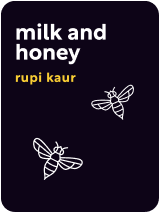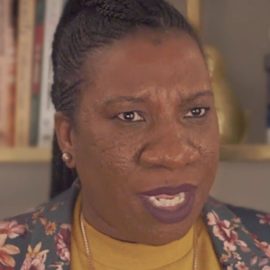

This article is an excerpt from the Shortform book guide to "Milk and Honey" by Rupi Kaur. Shortform has the world's best summaries and analyses of books you should be reading.
Like this article? Sign up for a free trial here .
What does the poetry of Rupi Kaur say about women? How does Rupi Kaur’s women-focused poetry reflect feminist principles?
For Rupi Kaur, women were always around her. But she internalized the idea that women were just there for men to use. But, as she got older, she saw the power of women and the importance of recognizing misogyny.
Read on for more about Rupi Kaur, women, and feminism.
Gender Oppression
Growing up, Kaur and her mother were told to be silent. Any time Kaur would try to speak up, her father and other men in her life would shut her down. Her father was afraid of her voice, so she grew to be afraid of it too. This may have been because her father taught her that women having an opinion made them less desirable to the rest of society.
Because she was told to stay silent, Kaur began to view herself as unimportant. She would look at herself in the mirror and tell herself that she was nothing. When she tried to convince herself that she was allowed to exist and have an opinion, her insecurities would silence her. She submitted to the demands of the men in her life and remained silent and unseen throughout her childhood.
Rupi Kaur: Women Can Claim Their Femininity
She recognized the misogynistic ways of her former lover as well as the other men in her life. Once, her lover told her that she wasn’t like other girls. Kaur hated this phrase as it implied that the only way she could be loved was to be different from other women. It was as if he were saying women are typically undesirable.
Following her breakup, she embraced her femininity. She realized that she was not owned by any man. She began to love her body, and she saw that she could do with it as she pleased. She learned to love the things about her body that others hated. She discovered a lot of her identity by embracing the things others may view as ugly or problematic such as her period, her body hair, and her stretch marks. She explains that every person is born beautiful, but society convinces them that they aren’t.
For Rupi Kaur, women must begin embracing their own beauty and stop judging other women. She believes every woman is different, and what women do with their bodies is their business. With this in mind, she calls for women to support each other and value one another for their intellect and resilience instead of just their looks. Instead of tearing each other down, she calls for women to celebrate each other’s success and raise each other up during their struggles.
Rupi Kaur: Women of Color Are Considered Less Desirable
Kaur believes that society tends to see her physical traits and those of her fellow women of color as undesirable. She explains that her hooked nose, dark complexion, and strong legs are often seen as ugly in North American culture. For Rupi Kaur, women should reject this premise, which she does. As she began to love herself and her body, she embraced her racial and cultural qualities as beautiful and as something that connected her to her rich ancestry.
She uses her surname (Kaur) to reflect on the struggles and beauty of her ancestors. On her journey of self-love, she used the strength of all of the women who came before her. For Rupi Kaur, the women who came before remind her of the following:
- She has a duty to support other women.
- She is as powerful as any man.
- She is her own unique person.
- Her cultural and gender identity makes her beautiful.
(Shortform note: the surname “Kaur” was historically given to all female Sikhs in 1699 by the 10th Guru in Sikhism—Guru Gobind Singh Ji. The name literally translates to “princess” and was championed as a symbol of gender and class equality in the Sikh faith.)

———End of Preview———
Like what you just read? Read the rest of the world's best book summary and analysis of Rupi Kaur's "Milk and Honey" at Shortform .
Here's what you'll find in our full Milk and Honey summary :
- How Rupi Kaur suffered sexual assault and oppression as a child
- What red flags Kaur missed in her toxic relationship
- How Kaur was able to heal and embrace her femininity






